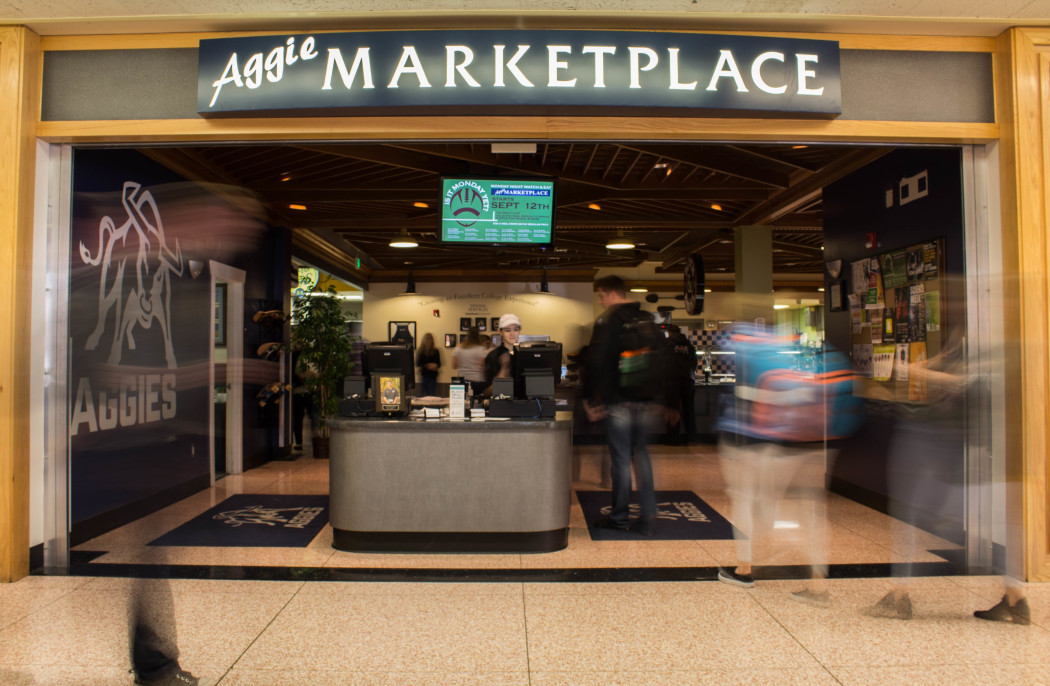Meal plan prices increasing in January, USU Dining Services says
Starting Jan. 1, the prices for block meal plans and on-campus cash equivalencies for all meal plans will rise.
The pricing of traditional meal plans will remain the same throughout the school year, but its cash equivalency will also rise in January.
The increases are due to inflation during the last three years, which has driven product prices up. The last price increase for block meal plans was three years ago.
“We work hard to keep our prices down, and we felt like we had no choice at this point but to raise our prices,” said Alan Andersen, executive director of Dining Services.
Block meal plans allow students to purchase a number of meals at a reduced rate that can be used in the Aggie Marketplace, the Junction or the Skyroom Restaurant anytime. Students are also allowed to visit other on-campus restaurants and spend up to $6.50 cash equivalency. Even though meal plan prices will become more expensive, the cash equivalency feature of the meal plans will become more valuable, rising from $6.50 to $7.
The new pricing of block meal plans depends on the number of meals purchased. Twenty-five meals will cost $206.25, an increase of $8.75. Seventy-five meals will cost $581.25, an increase of $26.25. The average increase is 35 cents per meal.
Andersen said Dining Services plans to start a proactive campaign in December to inform students about the block meal plan price increase and to encourage students to buy their block meal plans before prices go up.
“I’m glad that the cash equivalency is going up as well,” said KJ Patterson, a junior studying computer science. “If the meal plan were to go up but the cash equivalency weren’t, then I’d say that’s not fair.”
Kaden McArthur, a freshman in law and constitution studies, and Shaylen Skidmore, a freshman in biological engineering, both say they buy traditional meal plans specifically with the cash equivalency option.
McArthur and Skidmore both expressed that while they value cash equivalency, they wish the cash equivalency could be used more than once per day, a drawback of the traditional meal plan.
Andersen said one of Dining Services’ core values is continuous improvement.
“Let us know how we’re doing,” he said. “We can’t fix it if we don’t know that it’s broken.”
Andersen invites students to give feedback through Dining Services’ website using the Talk to the Director feature, which can be found at dining.usu.edu.
“We really want to know what is going on — good and bad,” he said.
–joshua.hortin@aggiemail.usu.edu

